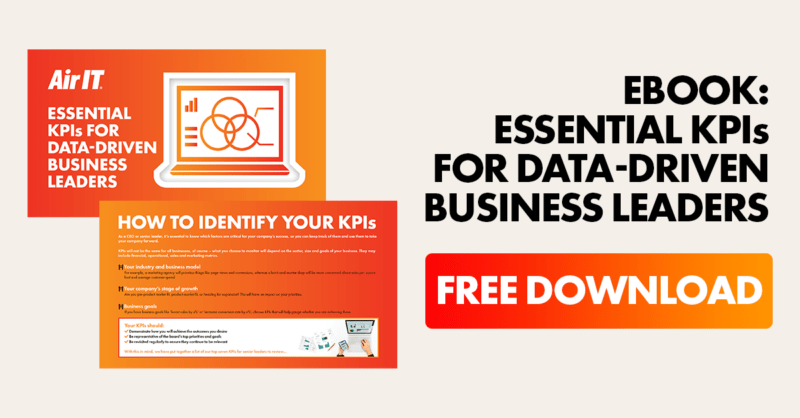So, you’ve set your strategic goals for your organisation and know exactly what you want to accomplish. But how can you tell if you’ve achieved your objectives? By leveraging your data with BI, you can unlock essential KPI's that will refine your strategies, improve efficiency, and maximise profitability. Here are the key data metrics every business leader should monitor:

1. Outgoings
Cash flow is one of the most vital business metrics, yet many organisations focus more on revenue without considering where money is being lost. Monitoring outgoings—including supplier costs, wages, expenses, and equipment—provides a clear picture of where efficiencies can be made. A single source of truth for expense tracking enables businesses to identify cost-saving opportunities and optimise spending.
2. Overall gross profit margin
Once you’ve streamlined your outgoings, the next step is to enhance profitability. Analysing gross profit margins allows businesses to evaluate product and service costs, identify resource-intensive areas, and make informed pricing or supplier adjustments. By focusing investment on high-performing offerings and discontinuing underperforming ones, companies can increase overall profitability.
3. Sales revenue vs. sales target
While most businesses aim to increase sales, many lack clearly defined, data-driven targets. Tracking actual revenue against sales forecasts provides valuable insights into sales team performance and market trends. With accurate data, businesses can set realistic, achievable sales goals and refine their strategies for sustained growth..
4. Profit retention per customer
Beyond revenue, it’s crucial to assess how much profit each customer generates. This KPI helps businesses identify their most valuable clients and tailor their efforts toward improving retention and customer satisfaction. Strengthening relationships with high-value customers leads to increased loyalty, long-term engagement, and higher profitability.
5. Customer trend
While acquiring new customers is essential, it is often more costly than retaining existing ones. Tracking customer retention trends provides insights into why clients stay or leave, allowing businesses to refine their offerings, improve customer experiences, and capitalize on retention opportunities.
6. Growth tracker
Growth can take many forms – expansion in products, services, employees, locations, or market share. By consistently tracking growth trends, businesses can forecast future performance, adapt to market shifts, and make informed strategic decisions. In a rapidly evolving landscape, data-driven growth tracking is key to staying ahead.
7. Sales conversion rates
How effectively are prospects converting into customers? Tracking sales conversion rates across different channels—website, app, social media, and direct outreach—provides valuable insights into customer behaviour. Understanding customer lifecycles enables businesses to refine marketing strategies, enhance engagement, and drive higher conversions.
Embracing a data-driven culture
While 79% of business leaders have a defined set of KPIs, only 36% actively use them across their organization. This gap highlights a missed opportunity—top-performing companies don’t just track KPIs, they embed them into their culture, using data to drive strategic decisions and outperform competitors. According to BARC, best-in-class businesses are those that embrace defined, pervasive KPIs, setting them apart from industry laggards.
eBook: Essential KPIs for Data-Driven Business Leaders
Want to unlock the full potential of your data with business intelligence? Our free eBook explores why data-driven decision-making is the key to gaining a competitive edge and breaks down the must-track KPIs for business success..
You’ll learn:
- The importance of a data-driven culture and leading by example
- How to identify the KPIs that matter to your business
- The top 7 KPIs that will drive success and growth
- Why you should develop a business intelligence strategy
- How Air IT’s Data & BI services make it easy to measure your data through KPIs






